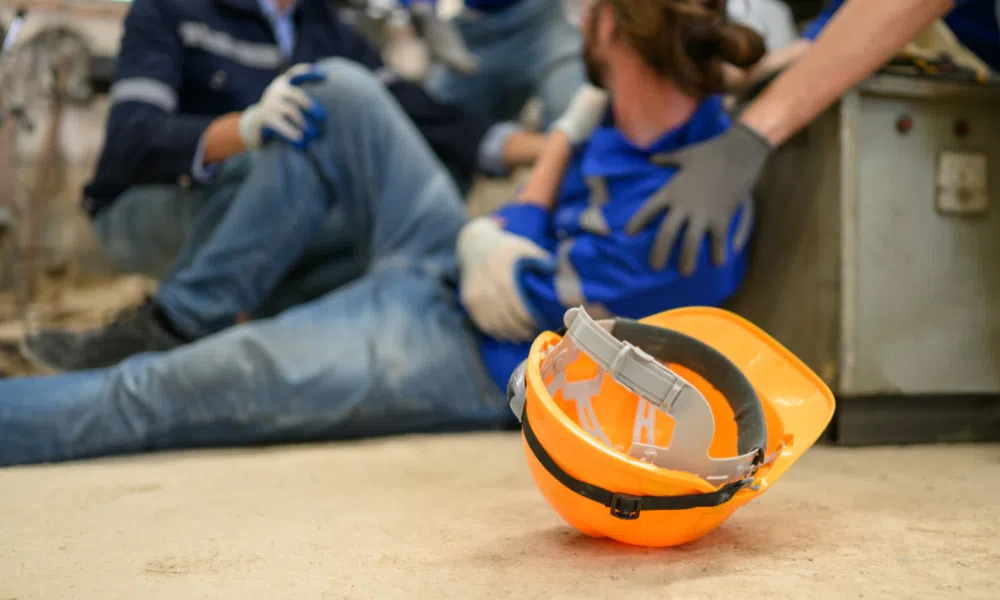If you’ve suffered a heart attack while working, you may be wondering whether workers’ compensation will cover your medical treatment and lost wages. Heart attacks are complex when it comes to workers’ compensation, and whether you’re eligible depends on several factors. At Rob Levine Law, we understand the difficulty of navigating the workers’ compensation system while dealing with a serious medical condition. We’re here to help you understand the circumstances under which your heart attack may be covered under workers’ compensation in Massachusetts or Rhode Island.
Can a Heart Attack Be Covered by Workers’ Compensation?
Workers’ compensation is designed to cover injuries that occur as a direct result of work duties, but heart attacks are more nuanced. To determine whether your heart attack is covered in Massachusetts, you must successfully meet a two-part test:
- Legal Causation: You must prove a legal cause, such as unusual physical exertion (not just general strenuous work), environmental factors, or significant emotional distress.
- Medical Causation: You must prove that the work event directly led to the heart attack, which requires a doctor’s medical opinion.
It is not enough that you simply had a heart attack while at work. Because these cases are always contested, it must be shown that your work environment or specific job duties either caused or significantly contributed to the event. This is often the case when physical exertion, emotional stress, or environmental factors at work are key contributors to the heart attack.
What is Considered "Work-Related" for a Heart Attack?
In both Massachusetts and Rhode Island, a heart attack can be considered work-related if it is caused by physical activity, emotional stress, or environmental factors associated with the job. These states generally use similar standards, but you will also need to overcome the challenge of any pre-existing conditions (such as high blood pressure) that could be linked to the heart attack’s cause. In Massachusetts, for example, a heart attack could qualify for workers’ compensation benefits if:
- Physical activity: The heart attack was triggered by strenuous physical work, such as lifting heavy objects or working in hazardous conditions that require significant exertion.
- Emotional factors: A sudden confrontation, a traumatic event, or high levels of workplace stress can contribute to a heart attack. Stress claims are often controversial, but in Massachusetts, emotional stress can be a valid reason for workers’ compensation if it was a substantial contributing factor.
- Environmental factors: Exposure to environmental factors, such as extreme temperatures or toxic substances, could also potentially contribute to a heart attack.
Stress Claims in Workers’ Compensation
Stress-related claims, particularly those for heart attacks caused by workplace stress, are frequently contested. To be eligible for workers’ compensation benefits for a stress-related heart attack, you must show that the stress was work-related and that it was significant enough to be a major contributing cause of the heart attack. In Massachusetts, emotional or mental stress must meet the criteria of being “a major contributing cause” under the state’s workers’ compensation law. Simply feeling stressed at work won’t automatically qualify; the stress must be linked directly to the duties or environment of the job.
What About Pre-existing Conditions?
A pre-existing heart condition does not automatically disqualify you from workers’ compensation. While a pre-existing condition can make a claim more difficult, it does not bar recovery if the work contributed to the event. For example, if your heart attack occurred while performing physically demanding tasks, or was triggered by an incident at work, it could still be compensable.
Under both Massachusetts and Rhode Island law, the “major contributing cause” standard applies. This means that even if you have a pre-existing condition, your work must be a major contributing factor in causing the heart attack in order to qualify for workers’ compensation benefits. If your work environment or job duties significantly aggravated or triggered your condition, you may still be eligible for compensation.
Reporting a Heart Attack: Deadlines and Employer Responsibilities
In both Massachusetts and Rhode Island, the timing of your report is critical.
- Massachusetts: You must report your heart attack to your employer immediately or as soon as possible to ensure your rights to workers’ compensation benefits are protected.
- Rhode Island: You must report the injury immediately or as soon as possible. In addition to this, there is a two-year statute of limitations for filing a workers’ compensation claim. This means that while you must report the injury promptly, you have up to two years to file the claim with the state.
After you report the injury, your employer is legally required to take specific actions. For example, in Massachusetts, your employer needs to notify their workers’ compensation insurer and then must file Form 101 if the employee is disabled for more than five days. In Rhode Island, the employer must report the injury to their claim administrator (the insurer or adjusting company) if the injury requires medical treatment, causes the worker to be unable to earn full wages for at least three days, or is fatal. Importantly, the claim administrator is responsible for reporting this information electronically to the Department of Labor and Training (DLT), as the DLT does not accept paper first report forms from employers or workers.
The "No-Fault" Nature of Workers’ Compensation
It’s important to note that workers’ compensation is a no-fault system. This means that you do not have to prove that your employer was negligent in causing your heart attack. If your heart attack is determined to be work-related, you are generally entitled to benefits regardless of fault. In exchange for this no-fault system, however, workers generally give up the right to sue their employer for negligence related to the injury.
How Rob Levine Law Can Help
If you’ve had a heart attack and believe it may be work-related, navigating the workers’ compensation process can be complex. At Rob Levine Law, we are committed to helping you assess your situation and determine whether you qualify for benefits. Our team has the experience to guide you through the legal process, gather necessary evidence, and fight for the compensation you deserve.
We can help you:
- Determine if your heart attack is work-related, and whether you qualify for workers’ compensation benefits.
- Gather medical evidence and expert testimony to support your claim.
- Navigate the claims process, ensuring that all deadlines are met and your rights are protected.
Call (888) 791-9135 or reach out online. Our workers’ compensation lawyers are here to help you understand your options and take the next steps toward securing the benefits you deserve.





